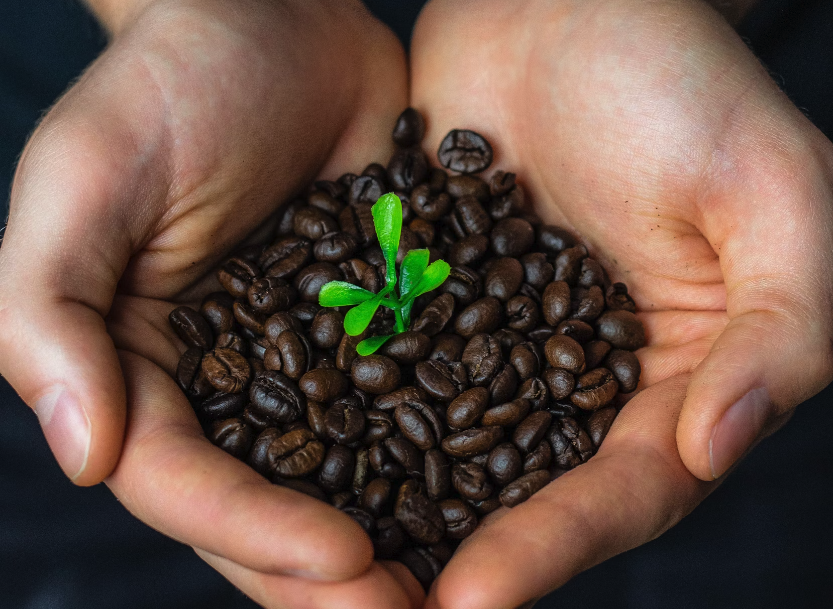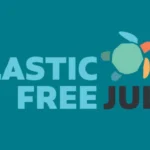This year, turning February into Fair-bruary is more important than ever as growing communities are increasingly pushed to the brink due to climate change. By 2050, up to half of the world’s land that is currently used to farm coffee may be unusable. Indicative of this, Fairtrade tea growers in India report more flooding, along with extreme temperatures and water scarcity, which are a result of climate change. In addition, various climate-driven extremes (e.g., drought, heat waves, erratic and intense rainfall patterns, storms and floods), and emerging insect pests are making crops ever harder to grow and as a result, are adversely affecting the livelihood of farmers.
Thanks to Fairtrade, local farmers and producers are given support when facing these growing challenges. Fairtrade is a certification system that sets standards in the production and supply of a product or ingredient. For those involved in farming and the production process it means workers’ rights, safer working conditions and fairer pay, while for shoppers it means higher quality products and a guarantee that their purchase was ethically produced.
In Stories of hope, farmers share their stories, the adversities they face and the ways in which Fairtrade benefits them. Foncho, a banana grower from Magdalena, Columbia explains that: ‘the climate has definitely changed, today we can’t predict the climate as we used to before, like our elders did.’ However, Foncho believes that Fairtrade provides farmers ‘the tools to fight the effects of climate change’. He explains that participating in a Fairtrade programme ‘has brought great benefits’ to his farms. Some of these benefits include managing diseases; reducing carbon and water footprint; improving fruit by using bio-fertilisers; and reducing the use of chemicals, including herbicides and insecticides. Overall, Fancho and his family have saved money, reduced water use, and improved soil health. Foncho states: ‘every peso this programme benefits me with has an impact in my family. Today, more than the financial part, the main benefit is to recuperate our soil.’
Fancho’s statements echo a study carried out in 2014 to assess the impacts of Fairtrade on orange juice producers in Brazil. The study found that a number of positive developments could be attributed to Fairtrade certification. These include:
- accelerating economic growth and creating higher income for the majority of producers.
- improving the quality of life of producers and their families by strengthening their capacity to invest in education and housing.
- reducing volatility by guaranteeing minimum price and enabling sales for small producers.
- helping small producers to survive in concentrated and competitive markets.
- providing strong market partnerships that offer training and financing.
- promoting the trust of producers by increasing the quality of cooperative governance and transparency.
- supporting the enforcement of just labour laws and safety regulations.
- helping to reduce the use of pesticides and increasing environmental and occupational health and safety.
Therefore, buying Fairtrade means standing with farmers for fairness and equality, and supporting them overcome some of the challenges they face. It also enables farmers to undertake long term positive changes, which includes investing in climate friendly farming techniques and the improvement of leadership roles for women to better enable them to run their own farms. Thus, by simply purchasing Fairtrade you will support important causes, help turn the tide, and show businesses and governments you believe in fair and just trade.
What can you or your organisation do for Fairtrade Fortnight (and beyond)?
For Fairtrade Fortnight, why not join the challenge by making a small permanent switch to a number of Fairtrade products when doing your next shop? Just look out for the little Fairtrade logo on packaged items, as below:
- You can swap your favourite treats for Fairtrade certified at your local supermarket including bananas, orange juice, tea, coffee, chocolate and more. You can also look out for Fairtrade cotton in some of your favourite clothing brands.
- You can also visit the Endangered Aisle, a pop-up experience in Shoreditch (East London) launched as part of Fairtrade Fortnight 2023 and open to the public.
The Endangered Aisle will shine a light on our favourite treats most at risk of becoming endangered from the climate crisis, including coffee, bananas and chocolate. As part of the launch, Fairtrade will release research highlighting how climate change is endangering the future of supermarket staples grown by farmers overseas.
- If you can’t visit the store you can sign up for the Big Fairtrade Get Togethers and attend a series of events hosted during Fairtrade Fortnight.
- If you’re an organisation, you can visit Fairtrade for Business to learn more about how hundreds of brands are practicing ethical procurement by sourcing Fairtrade commodities and supporting local growers through fair pay that keep farms running through these tough times.











